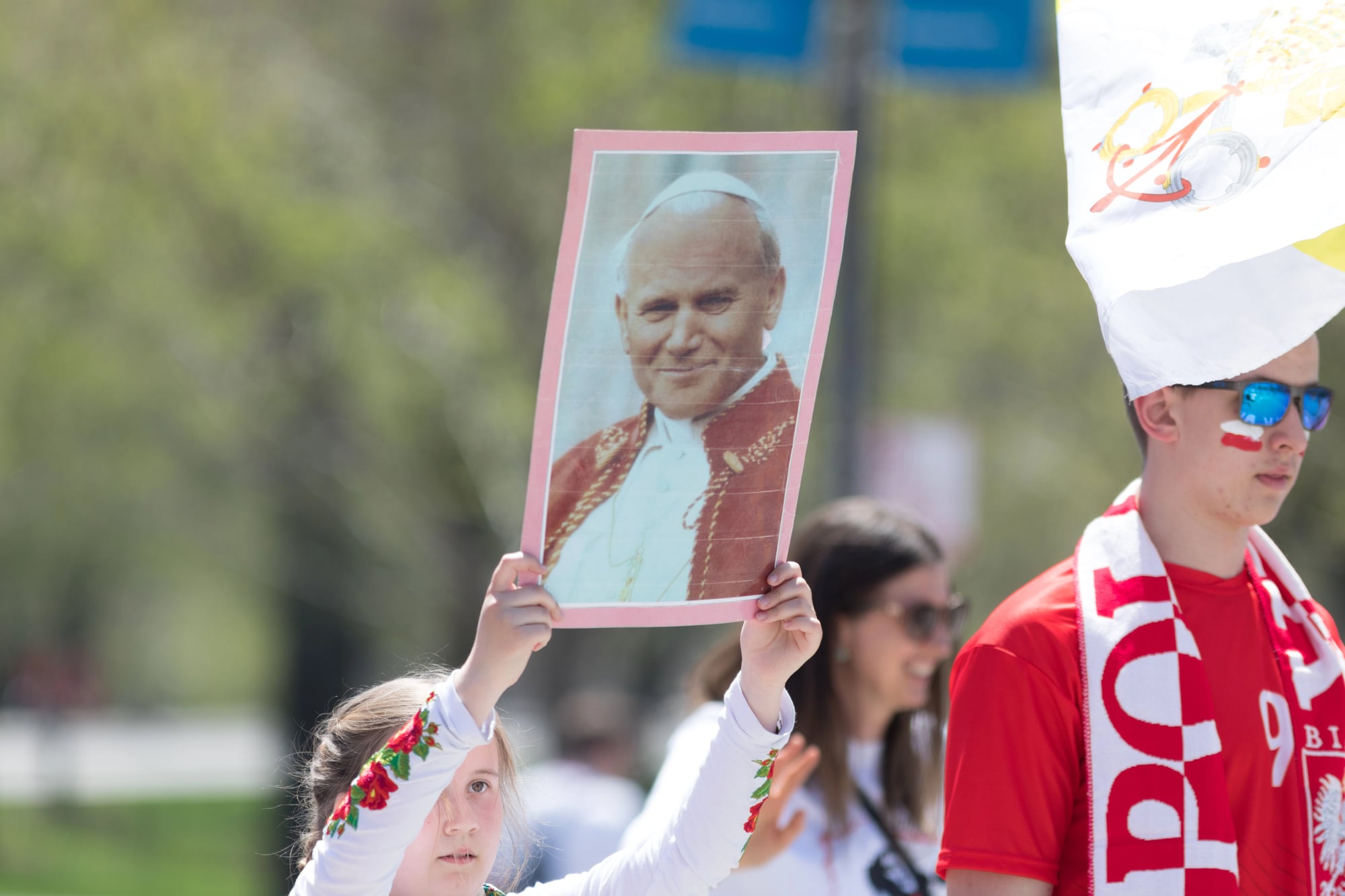Last week, Pope Leo XIV renewed his calls for peace in the Gaza Strip, this time by commending the various Catholic organizations who registered their solidarity with the besieged population of the territory. Since assuming the papacy in April, Leo has consistently advocated for a permanent ceasefire, as well as the immediate return of hostages and the safe entry of humanitarian aid. Leo, to his great credit, has resisted the urge to view the bloodshed through a sectarian lens. Instead, he has approached the conflict in human terms, calling upon people of faith to reject the mass murder and forcible expulsion of civilians, as well as the use of collective punishment as an instrument of warfare.
In many respects, Leo’s comments on the Palestinian genocide are part of the same tradition as Pope John Paul II’s opposition to the Iraq War. On January 13, 2003, the late pontiff delivered the following address to the Holy See’s diplomatic corps:
“No to war! War is not always inevitable. It is always a defeat for humanity. International law, honest dialogue, solidarity between states, the noble exercise of diplomacy: these are methods worthy of individuals and nations in resolving their differences. I say this as I think of those who still place their trust in nuclear weapons and of the all-too-numerous conflicts which continue to hold hostage our brothers and sisters in humanity. At Christmas, Bethlehem reminded us of the unresolved crisis in the Middle East, where two peoples, Israeli and Palestinian, are called to live side by side, equally free and sovereign, in mutual respect. Without needing to repeat what I said to you last year on this occasion, I will simply add today, faced with the constant degeneration of the crisis in the Middle East, that the solution will never be imposed by recourse to terrorism or armed conflict, as if military victories could be the solution. And what are we to say of the threat of a war which could strike the people of Iraq, the land of the prophets? War is never just another means that one can choose to employ for settling differences between nations.”
Later that year, on March 19, President George W. Bush announced the commencement of Operation Iraqi Freedom. In the months leading up the U.S. invasion, majorities of Americans from across the political spectrum backed the war. According to a poll conducted by the Pew Research Center in February, 66% of Americans, including 52% of Democrats and 67% of Americans between the ages of 18 and 29, said they supported “military action in Iraq to end Saddam Hussein’s rule.” Meanwhile, 57% of respondents, including 53% of Democrats, believed that the Iraqi dictator helped carry out the September 11 terrorist attacks, and 61% believed that Iraq was trying to hide weapons of mass destruction. The calls for war were at a fever pitch, but John Paul saw through the fog. At a time when invasion seemed both logical and unavoidable, the pope anticipated the deadly consequences of military action.
The pontiff’s formulation that war is “not always inevitable” offers a powerful rebuke to the faulty reasoning that foreign policy hawks employ whenever it comes time to justify their preferred policies, and his contention that it is “always a defeat for humanity” draws attention to the human toll such policies always exact. By advocating for diplomatic engagement, John Paul advanced a realist foreign policy vision, one which stood in stark contrast to the militaristic idealism—and idolatry—that enjoyed such widespread popularity in the post-9/11 era. His claim that “the solution will never be imposed by recourse to terrorism or armed conflict” understood the illogic of political violence, as well as the ways in which American military interventionism and Islamic fundamentalism fed off of one another. In that sense, John Paul demonstrated an astute understanding of blowback. And his description of the Iraqis as “a people already sorely tried by more than twelve years of embargo” reveals his comprehension of the key historical antecedents that political commentators are so fond of either diminishing or disregarding. (As the economist Robert Higgs likes to put it, they truncate the antecedents.)
Needless to say, the pope’s warning went unheeded. The Iraq War ended up directly killing somewhere in the range of 187,000 to 655,000 civilians and nearly 4,500 U.S. troops. It cost the United States $728 billion and laid the foundation for the gradual erosion of Americans’ civil liberties. But while Pope John Paul II failed to prevent the war, his example demonstrates the important role that religious leaders play in challenging dubious narratives and propaganda campaigns, especially when such instruments are widely approved by the broader public.
John Paul, much like Ron Paul, gave Christian social conservatives permission to oppose a war that they may otherwise have felt obligated to support. He advanced a consistent life ethic that rejected the rationale for the Iraq War while simultaneously opposing abortion. Two decades later, his courage and commitment to peace serve as a powerful example to all who oppose state violence.
































